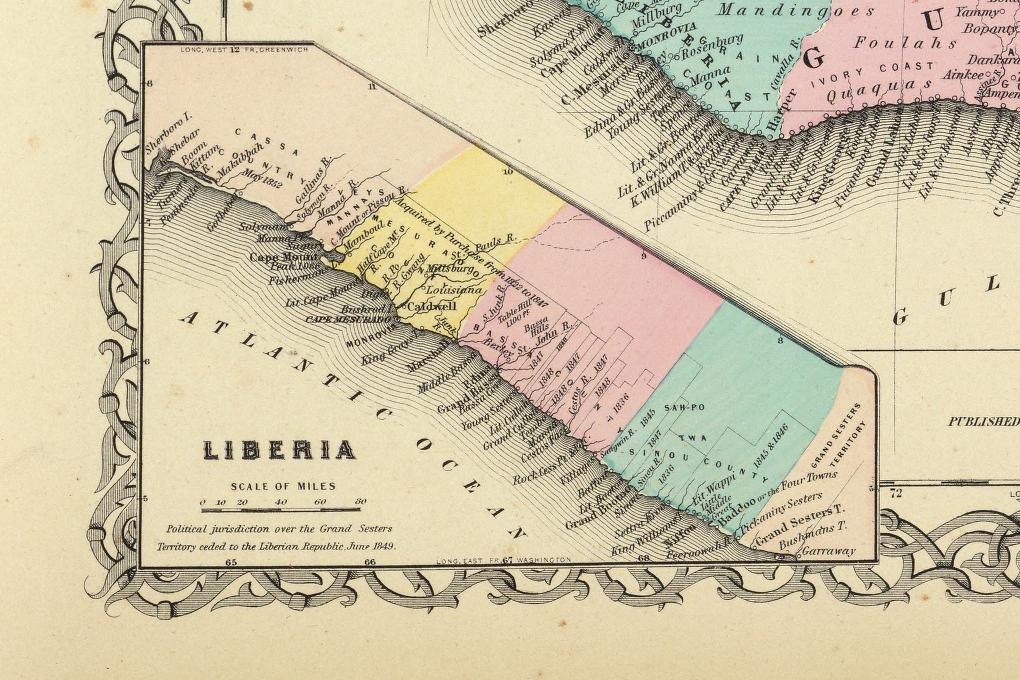
Liberia is a country in West Africa founded by free people of colour from the United States. Prior to the emigration of newly released African American slaves and citizens from the United States, Pedro de Sintra, a Portuguese sailor was first said to arrive at the Liberian coast in 1461.
Briefly, after the discovery of the coast by Pedro de Sintra, a few other sailors and traders quickly arrived at the coast to engage in trade activities as valuable items had been seen on the coast. This earned it the name “Grain Coast” as a result of the Melegueta pepper, as well other valuables.
However, it was still in the 18th century that the coast began having an influx of coloured and non-coloured individuals. The move for the abolishment of slavery was at its peak and began undergoing every abolishment process during which the Grain coast was proposed as a home for the released slaves. To follow this up, two U.S. government agents and two officers of the American Colonization Society visited the Grain Coast in 1818 to secure a safe settlement for the freed slaves.
Having failed to get to terms, it wasn’t until 1821 that an agreement was agreed between the officers of the society and the local African chiefs. The agreement involved offering the society possession of Cape Mesurado. The relocation of these recently freed African American slaves was, financed and set up by the American Colonization Society (ACS). The following year, 1822, the first American freed slaves, led by members of the society, landed on Providence Island at the mouth of the Mesurado River.

Shortly after the arrival of the freed slaves, Jehudi Ashmun, a white American, arrived also, he went on to become the real founder of Liberia before his departure in 1828. Leaving behind a government, a digest of laws for the settlers, and the beginnings of profitable foreign commerce.
Further settlements commenced along the St. John River, at Greenville, and at Harper and Thomas Buchanan was appointed the first governor in 1839 and died in 1841.
Succeeding the late Thomas Buchanan, the colony had its first black governor in place of Joseph Jenkins Roberts. A Virginia freeborn, Roberts expanded the size of the territory and made the cost of living good.
This period held the highest mortality rate of settlers, recorded in human history. Of the 4,571 emigrants who arrived in Liberia between 1820 and 1843, only 1,819 were the numbered survivors.
At the request of the governor, Joseph Jenkins Roberts, in 1846, asked the Liberian legislature to declare independence, but in a manner that would allow them to maintain contacts with the ACS. After this, the legislature called for a referendum, in which Liberians chose independence. A group of eleven signatories declared Liberia an independent nation on July 26, 1847. The ACS as well as several northern state governments and local colonization chapters continued to provide money and emigrants up till the late 1870s.
Regardless of the United States government’s failure to act upon requests from the ACS to make Liberia an American colony or to establish a formal protectorate over Liberia, the United States did set up a “moral protectorate” over Liberia, acting when threats advanced towards Liberian territorial expansion or sovereignty and Upon Liberian independence, Roberts was elected as the first president of Liberia.
Liberia held onto its independence throughout the fight for Africa by European colonial powers during the late 19th century, while remaining in the American sphere of influence.
SEE ALSO: Adolf Hitler Reacts To An Excited American Woman Kissing Him At The 1936 Berlin Olympics